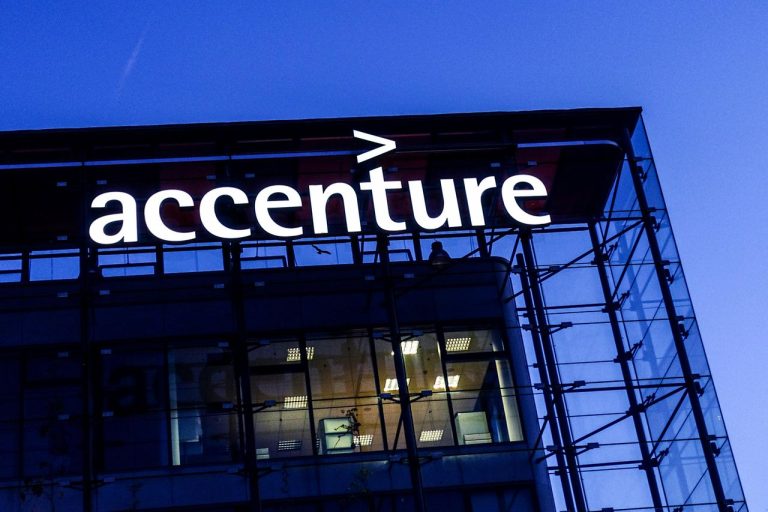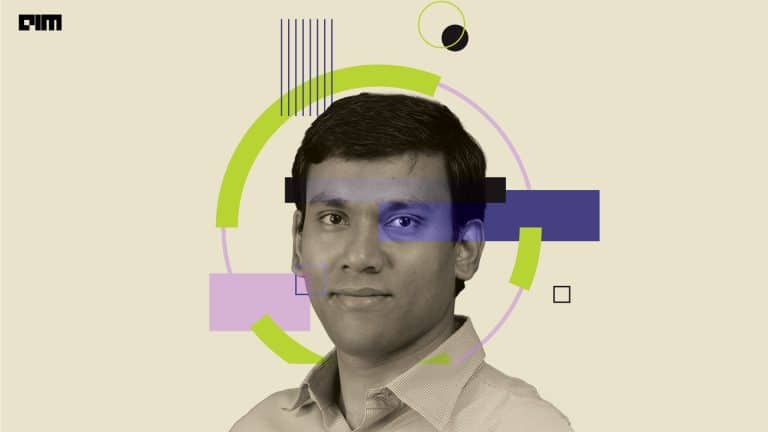An alumnus of Arizona State University and Harvard Business School, Senthil Ramani, Head- Accenture Applied Intelligence (AAI) for Growth Markets has been associated with Accenture since 2005. A part of Accenture’s Strategy and Consulting unit, AAI focuses on scaling AI, analytics and automation to power its clients. It defines end-to-end strategy in addition to data infrastructure capabilities and services to accelerate AI adoption among its clients.The AAI team consists of experts in areas of AI, data science, ML and data engineering
At AAI, Senthil is primarily responsible for growth, practice development and innovation across the Growth Markets—the Asia Pacific, Middle East, Africa and Latin America.
In a conversation with Analytics India Magazine, Senthil talks about how AAI’s mission, hiring criteria, the need for Responsible AI and how AAI is helping solve real-world problems:
AIM: Define the key role and responsibilities of the AAI team?
Senthil Ramani: We want to enable our clients– both private and public organisations to make better decisions and with a greater degree of confidence. Our mission is accomplished only if insights derived lead to intelligence and are truly applied in the field. That is why we call ourselves Applied Intelligence.
We have got three major disciplines:
- Data Analytics
- AI
- Automation
Our team mostly comprises primarily data scientists, data engineers, AI specialists with deep industry and domain expertise, machine learning engineers, business visualisation engineers, and MLOps engineers.
We want to help our clients scale AI to create business impact. The moment for AI has arrived, globally. AI has become a Board-level priority in terms of how it can create business value, what investments are needed, and what the roadmap looks like. Organisations have seen various proofs of concept roll out across their organisations and are looking to build a more integrated, holistic approach that aligns with their business strategy. The leaders are starting to see a direct correlation between scaled AI adoption and their financial metrics.
AIM: What do you look for in candidates that you hire for the AAI team?
Senthil Ramani: At AAI, we want to continue attracting top talent in AI and strengthening our position as a top destination for AI talent in India.
There are primarily five key dimensions that we look for when we start hiring:
- Industry Lens: It is extremely critical for experienced candidates to have an understanding of the industry domain
- Knowledge of statistics and econometrics and critical technical skills such as Python, R, and Spark
- Industrialisation of the analytics process: data engineering, expertise in cloud platforms, data lakes and automation
- Vertical expertise: Computer vision, NLP, machine learning, predictive analytics, and chatbots
- Multidisciplinary skills: Visualisation, data story-telling and behavioural sciences
AIM: How does Accenture groom its talent pool to become the workforce of the future?
Senthil Ramani: Globally, Accenture spends nearly $1 billion every year towards learning and development of its people. We are deeply committed to upskilling and reskilling as well. We apply different types of approaches for learning as well:
- Core foundational training on applied intelligence
- Role-based deep skill building
- Training our people to ignite insights for our clients and be data-driven
- Training on responsible AI practices
Our learning modules range from technical training to training on consulting readiness with an emphasis on problem solving to soft-skill development, developing leadership skills and fostering inclusion and diversity.
AIM: How is AAI helping its clients transform businesses and industries? Share a few examples.
Senthil Ramani: We worked with Vodafone UK to deliver consistently outstanding customer service, in the best channel for the customer, no matter the issue they’re inquiring about. By analysing customer contact patterns (including both proactive and reactive comms), we created a cross-channel view of a customer’s journey and built an intelligent system – powered by data and AI – to route incoming calls to the best channels. Because this solution used past behavior patterns, it could also predict when customers were most likely to reach out and send them proactive messages before they needed to get in touch. Less than a year after Intelligent Care’s launch, inbound calls were down by 1.5 million, digital channel usage increased by 26 percent, and customer satisfaction went up.
We’ve also worked with the National Center for Global Health and Medicine in Japan to develop an interpretable risk prediction model for lifestyle-related diseases (diabetes, hypertension). These diseases account for roughly 30 percent of all domestic medical costs in Japan, and about 50 percent of deaths in the country. Using anonymised medical data from approximately 120,000 annual health exams spanning nearly 10 years, we were able to build a model that can help physicians and patients gain a better understanding of what factors contribute to the risk of lifestyle-related diseases. We expect this model to be integrated into consumer-facing technologies in Japan in the very near future.
We are helping governments with critical projects. We worked with the government of India to proactively help its 1.3 billion citizens find accurate information that would better prepare them for the COVID-19 crisis and empower them to reduce their risk of contracting the virus. Along with our partners, we stood up MyGov Saathi (meaning “companion” in Hindi), a low-code solution that provides accurate and useful information on the pandemic. The agent can handle up to 300,000 users per day and 20,000 concurrent users per minute and was embedded on the Government’s “self4society” website, where it manages interactions automatically, freeing up human experts to focus on the most urgent and complex situations. The AI agent addressed frequently asked questions, with users able to retrieve answers from a menu of options easily. The agent also delivered fact sheets, information on Government initiatives, professional and medical advice, and alerts and lists of ‘Myth busters’ to dispel false alarms. The solution is persona-based, tuned to provide customized answers for queries relevant to farmers, migrants, senior citizens, frontline workers and other citizens.
AIM: How does AAI differentiate itself from other players?
Senthil Ramani: There are three vectors to it:
- We are deeply committed to upskilling and reskilling our people so that they are at the leading edge of solutioning for our clients. We have deepened our partnerships for the study, skills and application of AI with universities such as Alan Turing Institute in the UK, and Massachusetts Institute of Technology and UC Berkeley Institute for Data Science in the United States.
- We are building market-leading assets and solutions– Solutions.AI offerings – end-to-end modular solutions– are designed to integrate across the ecosystem. We’ve combined the power of our people, our IP, our solutions and our ecosystem cloud partners to create scalable solutions
- Strategic acquisitions: Over the past two years, we have made eight acquisitions across the world– to boost our skills and capabilities in the areas of AI and analytics– in Australia, Spain, France, India, the US and UK.
AIM: Why do you feel Responsible AI is so important?
Senthil Ramani: Gartner predicted that through 2022, 85 percent of AI projects could deliver erroneous outcomes due to the bias in data and algorithms. It means that in every 100 AI projects that are delivered, only 15 are going to be successful. Responsible AI is critical since it makes AI systems more transparent, reliable and interpretable.
AI algorithms should not be a black box. They should be understandable and explainable to inspire trust.
Secondly, there is nothing called unbiased data or unbiased algorithm. It is a statistical impossibility, making it crucial to take a qualitative, a human and a machine-led approach. This is exactly where Responsible AI comes into the picture.
There are seven dimensions to Responsible AI:
- Soundness
- Fairness
- Transparency
- Accountability
- Robustness
- Privacy
- Sustainability
Responsible AI increases the trust factor and confidence in the results that these algorithms deliver.
As we scale AI, we need to look at adopting AI responsibly and we have got to be grassroots-oriented in our approach towards responsible AI adoption. Responsible AI ensures the ethical and accountable use of technologies in a manner consistent with user expectations, organizational values and societal laws and norms, thereby allowing companies to engender trust and scale AI with confidence.
AIM: How can companies promote Responsible AI?
Senthil Ramani: Companies need to do four things to set up a foundation for Responsible AI:
- Establish responsible AI objectives, outcomes and a governance strategy, that is, it needs to principle-driven
- Build responsible AI tools, teams and capabilities. Provide training to employees and create a culture of responsible AI.
- Create human-centric systems of governance
- Contribute to thought leadership and industry discourse on the subject
AIM: Tell us about a few real-life problems that AAI is providing solutions to.
Senthil Ramani: As artificial intelligence (AI) becomes increasingly interwoven into the fabric of our lives, there is a growing appetite to harness its power for good. Our people have the opportunity to work on a wide range of projects and help shape how AI solves real world problems:
- Coral reefs are endangered and are rapidly degraded due to overfishing, warming temperatures and unsustainable coastal development. To fight that, we are working with the Sulubaaï Environmental Foundation to apply computer vision to monitor the health of coral reefs in the Philippines.
- We used data science to help researchers and clinicians tackle pediatric leukemia to better analyse patient clinical trials and genetic data, with the potential to improve precision medicine.
- We have worked with a non-profit to identify potential human traffickers.



















































































